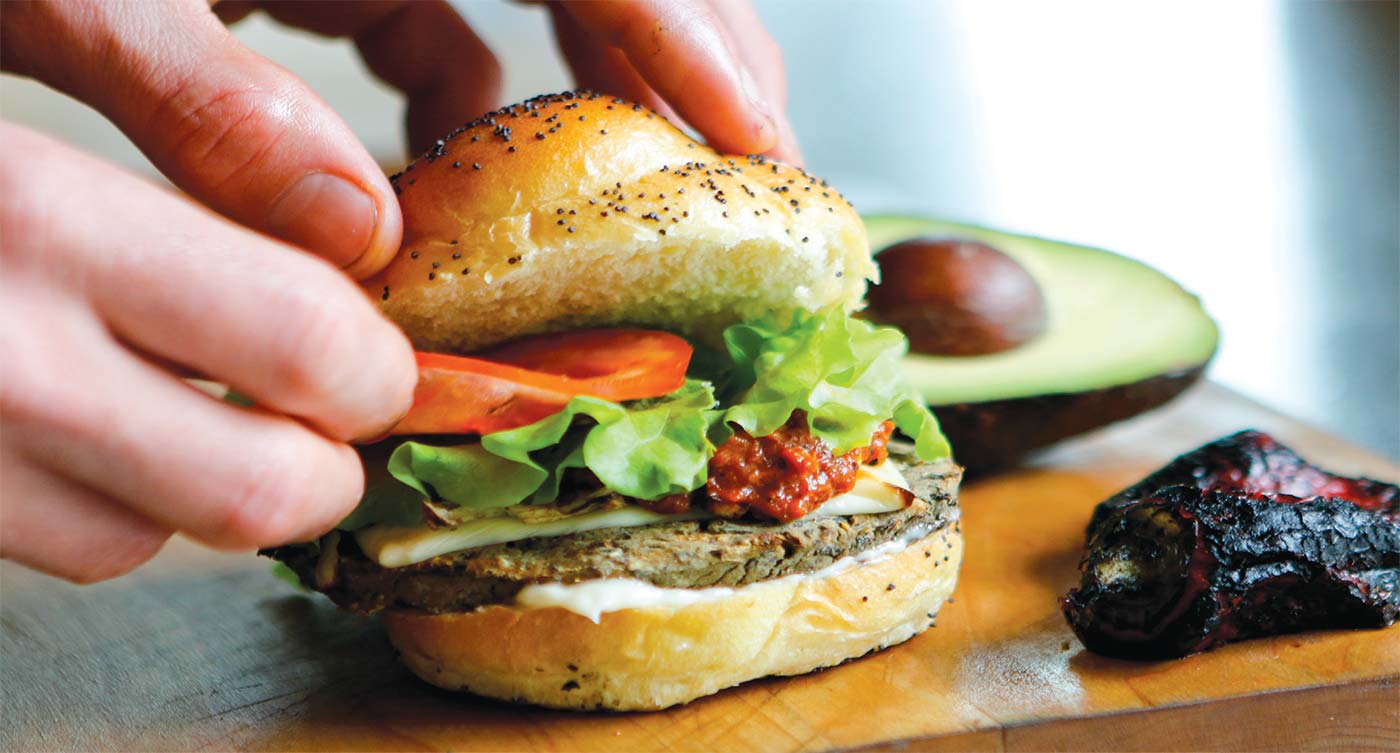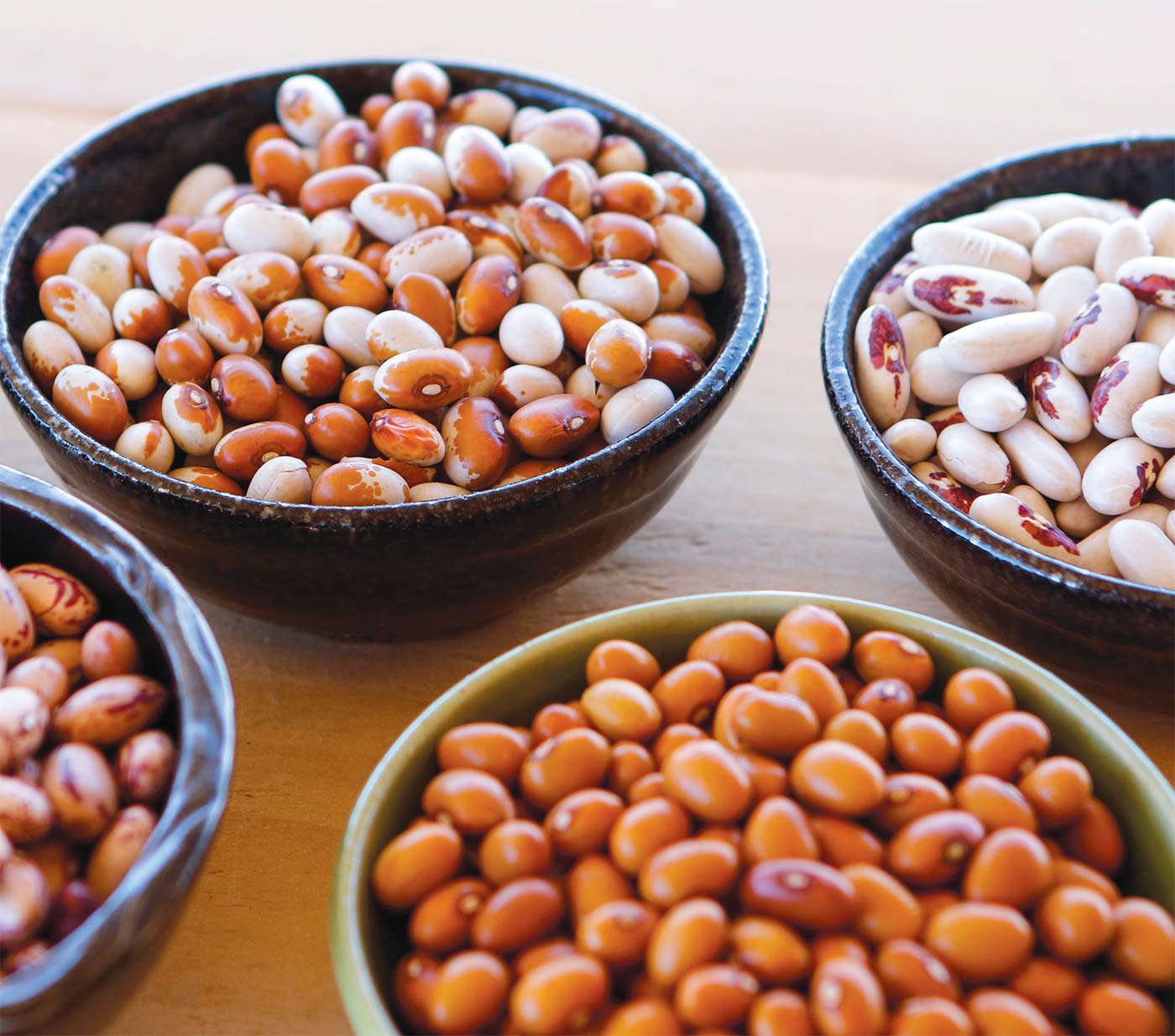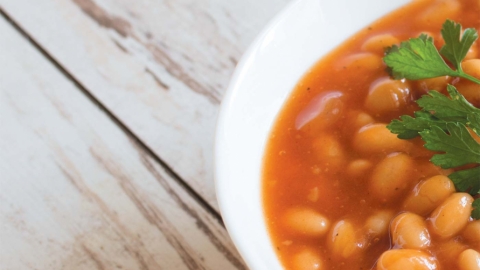Vermont Bean Crafters, Warren Vermont's Bean Evangelists
Experience beans like you never have— in burgers, falafel, sourdough bread, even cookies and cakes!
If you’ve cooked with dry beans, you know the first step is to let them sit in water overnight. The next morning, when you uncover the pot, the beans that reached halfway up the vessel the night before are now close to the top, and the water that covered the beans has magically disappeared.
The bean is an overlooked source of protein and fiber, and as with soaking beans, these little gems grow in size and importance when you consider the varied ways they help the health of local farms and the people who make them part of their diet. And in Vermont, not many know beans as well as Joe Bossen, a self-described bean evangelist based in the Mad River Valley. When you think of an evangelist, maybe you think of someone who experienced some type of conversion and now boldly proclaims what they believe to all who will listen. Joe does proclaim; but when we talked, he used mellow and measured tones to profess the varied benefits of beans and his devotion to them throughout his working life.
As for conversion, that came in two parts. As a young boy in southern New Jersey, he ate and enjoyed Italian and Mexican foods, common in that part of the Garden State, but he loved to grab a spoon and eat beans. “I found that taste and texture-wise, it was a really gratifying culinary experience,” he says.
His second conversion came in 2008. The Great Recession tanked the economy shortly after he graduated from Green Mountain College, making for an uncertain future. Joe also began to witness the older generations in his family dealing with chronic health issues, some related to diet. On top of that, Joe was concerned with weighty issues such as economic justice, animal welfare, and energy use, especially related to transporting and storing proteins for consumption.
Such an eyes-wide-open view of the world could lead people to despair. Instead of succumbing, Joe set a path to try to make a living by creating a business that could increase soil and human health. There seemed few options for such a path, save for a life centered on the bean, the affordable, shelf-stable, locally growable protein.
There was only one problem: how do you get people to eat beans?
Joe believed a burger made of black beans could become part of that ritual if it tasted great; he began crafting a better bean burger, and after lots of fine-tuning, which, Joe admits he still does today, he came up with a delicious alternative to a beef or turkey burger.

Although delicious on their own, Vermont Bean Crafters‘ Black Bean Burgers piled up with fresh veggies and condiments make for a tasty, satisfying sandwich.
BLACK BEAN BURGER TO THE RESCUE
Joe landed a job at Boardman Hill Farm in West Rutland. Greg Cox, the owner, gave him an acre of land to grow black beans and to build out a commercial kitchen in part of a barn. Joe learned that although farming was something he wanted to pursue, the capital needed to start a farm was beyond him. That, coupled with the fact that he didn’t want to be another small farmer competing for a piece of the finite organic vegetable farming pie, helped him focus on creating value-added products using crops already grown by local farmers—carrots, kale, and onions—and those he hoped to build markets for: beans, buckwheat, and oilseed crops. And he knew the spot in the broader food market he could penetrate.
Burgers play a big part in the American diet. They’re on grills galore summer evenings, and many restaurants have sections on their menu devoted to them. Whether eating them with family at home or with friends on a night out, the burger can be viewed as the centerpiece of a ritual built around great food. He believed a burger made of black beans could become part of that ritual if it tasted great. He began crafting a better bean burger, and after lots of fine-tuning, which, Joe admits he still does today, he came up with a delicious alternative to a beef or turkey burger.
“Whether [the diner] cared about local organic agriculture, whether they care about organic at all, whether they care about soil building, crop rotations, or a high-fiber diet,” Joe says, it didn’t matter. By eating a black bean burger, “they could still be making the world one iota better, their own health one iota better.”
If black bean burgers aren’t your thing, Vermont Bean Crafters also crafts falafel; a second veggie burger; the cleverly named mockingbird nuggets; and cookie and muffin mixes. All the products are made in Warren and are gluten-free, organic, vegan, and sourced locally, with beans coming from farms in Vermont, Maine, and New York. The only exception is the falafel, which is made from chickpeas, a crop that does not grow well here. For those beans, Vermont Bean Crafters relies on Ramona Farms in Arizona, run by Karen Button, a member of the Tohono O’odham tribe, on 350 acres of ancestral land.
Vermont Bean Crafters also offers a subscription service called the Bean Box for those who wish to explore the wonderful world of beans with a guide. Every three months, subscribers receive a selection of beans and grains.
THE SOULFUL BEAN, THE HUMBLE EVANGELIST
Joe is humbled that people trust Vermont Bean Crafters. “There’s a responsibility that comes with having this role in the community,” he says, “and wanting to do right by that. We use the word soulful, but I don’t know how to concisely speak to it. The word is wrapped up in that overall sentiment of wanting to do right by the ineffable and intangible parts of what makes a bean a bean, what makes a person a person.”
“In my perfect world,” Joe says, “everyone would be buying dried beans in bulk and cooking from scratch at home.” And although he delivers beans to people in different, approachable ways, he knows some folks take pleasure in the ritual of preparing dried beans and creating something special the next day.
Vermont Bean Crafters sells beans in bulk for businesses and people who know what they want to cook. The company also offers a subscription service called the Bean Box for those who wish to explore the wonderful world of beans with a guide. Every three months, subscribers receive a selection of beans and grains. Some may be familiar, but many, such as Jacob’s Cattle Beans, Sea Island Red Peas, or Yellow Eye Beans, may be new. But don’t fret about how to cook them. Along with the beans, eager and curious cooks also receive a recipe booklet that gives each bean a bio and a recipe for how to cook them. Plus, the thoughtful opening paragraphs in each booklet give Joe a chance to evangelize a bit on the bean.
Chefs and grocers can find Vermont Bean Crafters’ products through Black River Produce, Food Connects, Reinhart, US Foods, and Associated Buyers. Home cooks can purchase bulk beans and Bean Box subscriptions.






